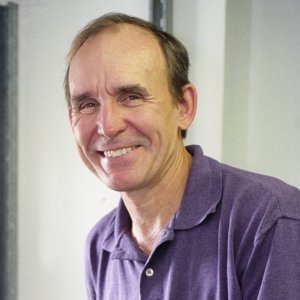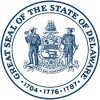Scientist Walks Into a Bar lecture to focus on deep ocean
Editor’s note: This column is a regular feature written by staff at the University of Delaware. It spotlights UD research at UD facilities in Southern Delaware, and related events in beach towns and surrounding areas.
Researchers from the University of Delaware College of Earth, Ocean and Environment’s Lewes campus work around the world to explore and examine the most pressing and current coastal and marine science issues.
A lecture series called Scientist Walks Into a Bar gives local community members the chance to hear about this pioneering work as researchers travel to locations throughout Southern Delaware to share their science.
The next series event will be held from 5:30 to 7 p.m., Wednesday, Nov. 19, at Abbott's Grill in Milton. The event is free and open to the public, but registration is required; go to tinyurl.com/mrxmjv3u. A limited menu will be available for purchase during the event.
Attendees will learn about mesoscale eddies—large, swirling ocean currents that can last for weeks or months—from Xinfeng Liang, an associate professor in UD’s School of Marine Science and Policy. Liang’s research group uses satellite data to see how these eddies affect deep ocean currents and how they help disperse the larvae of hydrothermal communities living along the mid-ocean ridges.
“I look forward to sharing some of the interesting science the School of Marine Science and Policy team has been working on,” said Liang. “I want to explore the mysteries of the deep ocean, show how physics is closely linked to biology and explain how the deep ocean is connected to the upper ocean.”
David Kirchman, professor emeritus, will focus on microbes, specifically bacteria at the base of the food chain that supports all life in the ocean.
Oceanographers once thought there were only a few bacteria in the ocean, and their only role was to regenerate nutrients to support the rest of the marine food chain.
“My work, along with that of many colleagues, showed that bacteria are the most abundant organisms on Earth and account for more biomass than all other organisms, except for terrestrial plants,” said Kirchman.
Kirchman said scientists are now concerned about how bacteria will respond to climate change, as global warming could result in less oxygen in the ocean, less food for larger organisms and more carbon dioxide released to the atmosphere, worsening the climate impacts already reshaping ecosystems and society.
This will be the fifth event for Scientist Walks Into a Bar, which started in 2024. Researchers are thrilled with the welcome they’ve received from the community.
“The thing we often hear is that people didn’t realize such important work was being done by our scientists down here in Lewes,” said Andrew Wozniak, an associate professor in the School of Marine Science and Policy who leads the event with Chris Petrone, marine advisory service director for Delaware Sea Grant at UD. “The feedback has been overwhelmingly positive from the audience members, and we’ve been really pleased with how successful it’s been.”
Future plans include expanding into other venues, bringing the Scientist Walks Into a Bar event to libraries, community centers and more.
Those interested in keeping up to date with the College of Earth, Ocean and Environment at UD may join the Mariners program, a community of individuals who are passionate about the land and sea, scientific discoveries and protecting Southern Delaware’s coastal beauty. For more information, visit udel.edu/mariners.






















































